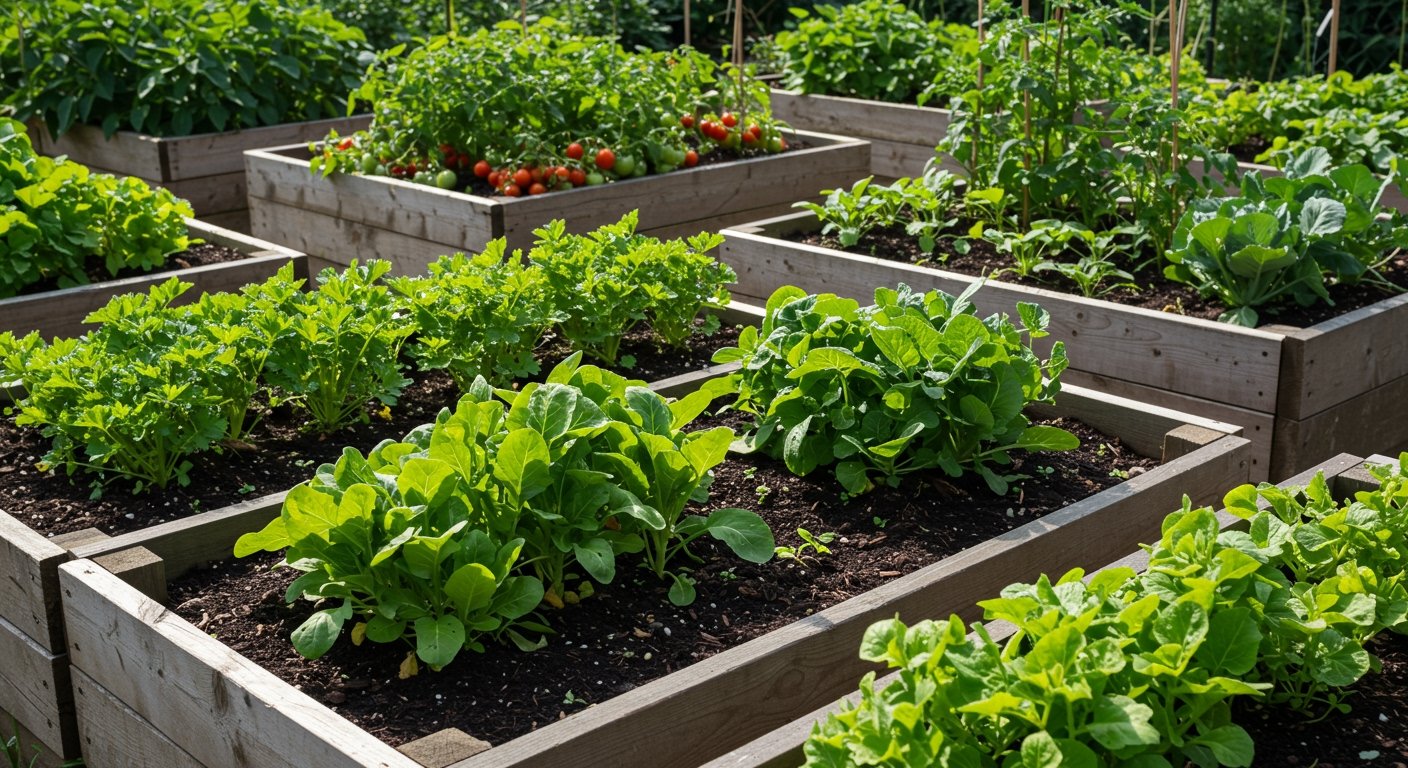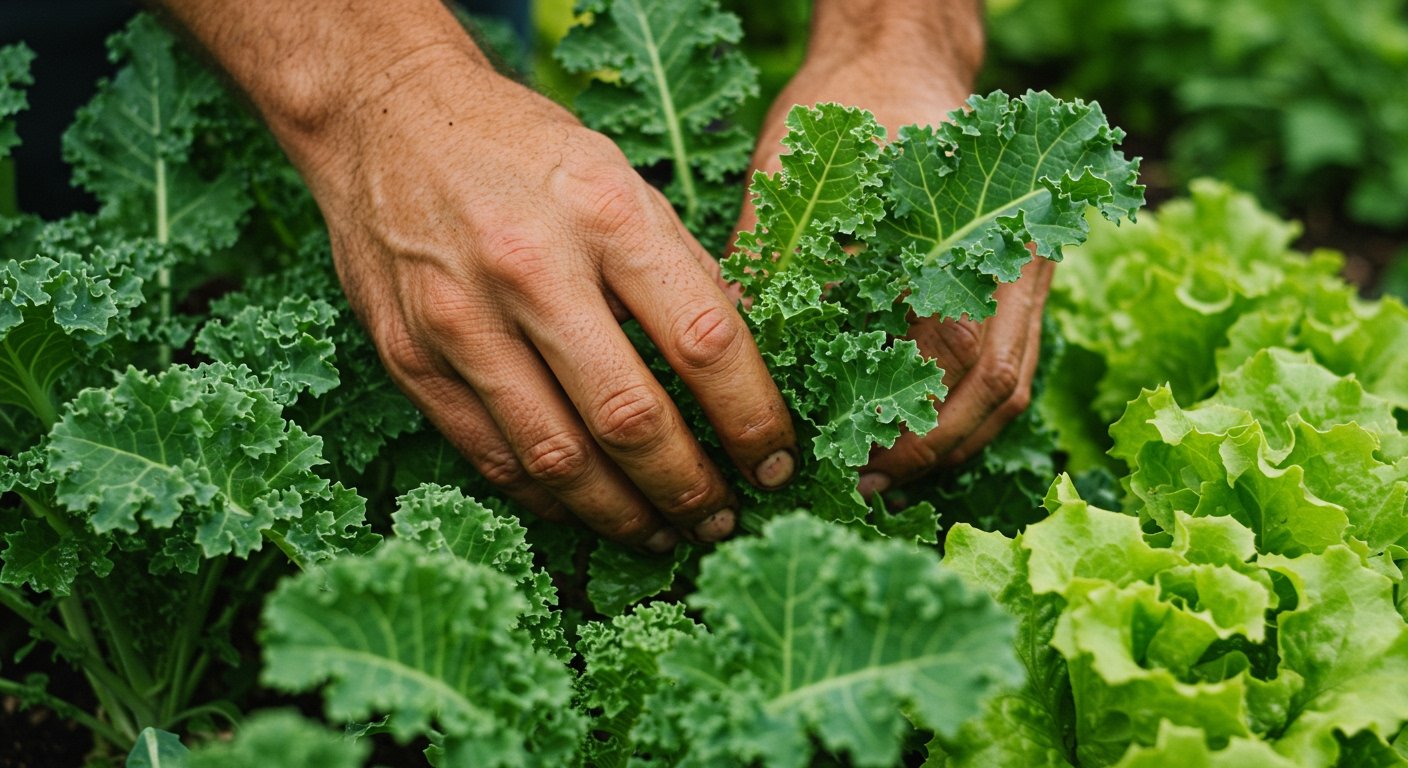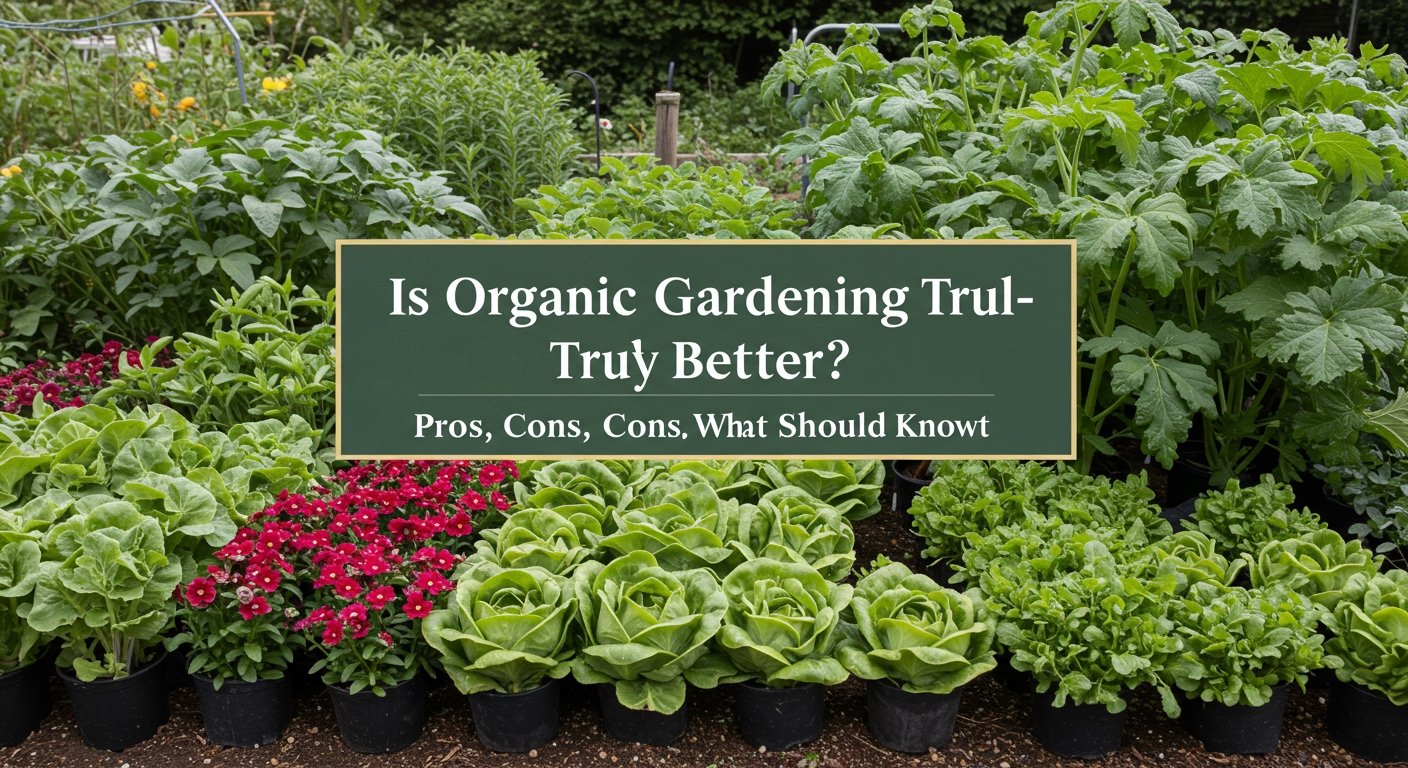In an era of increasing environmental consciousness, organic gardening has emerged as a popular and often debated practice. But is it truly better for you, your plate, and the planet? This comprehensive guide delves into the fascinating world of organic gardening, exploring its many facets to help you understand the true organic gardening pros and cons. We’ll examine everything from soil health to pest control, empowering you with the knowledge to cultivate your own green sanctuary, organically or otherwise.
Unpacking Organic vs. Conventional Gardening
At its core, organic gardening is a method that avoids synthetic pesticides, herbicides, chemical fertilizers, and genetically modified organisms (GMOs). Instead, it relies on natural processes, ecological balance, and biodiversity to nurture plants and enrich the soil.
Organic vs Conventional Farming Differences
- Soil Health: Organic methods prioritize building healthy, living soil through composting, cover cropping, and natural amendments. Conventional farming often uses synthetic fertilizers that feed the plant directly, sometimes neglecting the long-term health of the soil microbiome.
- Pest and Disease Control: Organic gardeners use natural pest control methods like companion planting, crop rotation, beneficial insects, and organic sprays (e.g., neem oil). Conventional farming frequently employs synthetic chemical pesticides and herbicides.
- Fertilization: Organic gardens are nourished by compost, manure, and other natural substances that slowly release nutrients. Conventional gardens often rely on fast-acting synthetic chemical fertilizers.
- Environmental Impact: Organic practices generally aim to reduce pollution, conserve water, and promote biodiversity, leading to significant environmental benefits of organic gardening.

The Benefits of Organic Gardening
Many gardeners are drawn to organic practices for a multitude of reasons, both personal and environmental.
Healthier Soil, Healthier Plants
One of the foremost “Benefits of organic gardening” is its focus on “Healthy soil organic gardening”. Organic methods foster a vibrant ecosystem within the soil, promoting microbial activity that makes nutrients more available to plants. This leads to stronger, more resilient plants that are better equipped to withstand environmental stresses.
Reduced Exposure to Chemicals
By avoiding synthetic pesticides and herbicides, organic gardening significantly reduces your exposure to potentially harmful chemicals. This is a primary concern for many who ask, “Is organic produce healthier?” or “Is organic food safer?” While debates continue, minimizing chemical residues on food is a clear advantage.
Environmental Stewardship
The “Environmental benefits of organic gardening” are substantial. Organic practices help conserve water, reduce soil erosion, prevent water pollution from chemical runoff, and support biodiversity by creating habitats for beneficial insects and pollinators. This makes organic gardening a more sustainable choice for the planet, directly answering, “Is organic gardening more sustainable?”
Why Grow Organic Vegetables?
Beyond health and environment, many believe that organic vegetables simply taste better due to the healthier soil they grow in. The act of growing your own food organically also connects you more deeply with nature and provides a fulfilling sense of accomplishment.
Pros
- Improved soil health and fertility, leading to long-term garden vitality.
- Reduced exposure to synthetic pesticides, herbicides, and chemical fertilizers.
- Significant environmental protection, including cleaner water and increased biodiversity.
- Potentially better taste and higher nutritional value in produce (often perceived).
- Supports a more sustainable and regenerative food system.
- Safer for children, pets, and wildlife in the garden environment.
Cons
- Higher initial labor and time investment for soil building and pest management.
- Potential for lower yields compared to conventional methods, especially for beginners.
- More vulnerable to widespread pest and disease outbreaks without synthetic interventions.
- “Cost to start organic garden” can be higher for initial amendments and certified seeds.
- Requires more knowledge, patience, and observation skills to manage natural systems.
Addressing the Disadvantages and Challenges
While the advantages are compelling, it’s important to acknowledge the “Disadvantages of organic gardening” and the “Challenges of growing organic food” that new and experienced gardeners alike may face.
Increased Labor and Time Investment
Organic gardening often requires more hands-on effort. Building healthy soil through composting, weeding by hand, and implementing “Natural pest control organic gardening” strategies can be time-consuming compared to simply applying synthetic products.
Pest and Disease Management
Without chemical crutches, organic gardeners must become keen observers of their garden ecosystem. This means understanding pest life cycles, encouraging beneficial insects, practicing crop rotation, and employing physical barriers. While effective, it demands a different skillset than conventional methods.
Initial Costs
The “Cost to start organic garden” can sometimes be higher initially. Investing in quality organic soil amendments, certified organic seeds, or effective natural pest deterrents can add up. However, these are often long-term investments that pay off as soil health improves and the garden becomes more self-sustaining.
Potential for Lower Yields
Especially when first transitioning, organic gardens might experience slightly lower yields compared to those bolstered by synthetic fertilizers. This is a common concern, but with improved soil health and proper management over time, organic yields can become quite robust.

Organic Gardening for Beginners: Getting Started
Don’t be intimidated by the challenges. “Organic gardening for beginners” is entirely achievable with a few foundational steps:
1. Start Small: Begin with a few easy-to-grow vegetables in a manageable space.
2. Focus on Soil: Your soil is the heart of your organic garden. Invest in good compost, learn about your soil type, and consider raised beds for easier control.
3. Learn Your Local Pests and Beneficials: Identify common garden invaders and, more importantly, the helpful insects that prey on them.
4. Practice Crop Rotation: Move different plant families to different areas each year to break pest and disease cycles.
5. Embrace Composting: Turn kitchen scraps and yard waste into nutrient-rich compost, reducing waste and feeding your soil.
Is Organic Gardening More Sustainable?
Yes, generally, “Is organic gardening more sustainable?” The very principles of organic gardening—working with nature, building soil health, conserving resources, and fostering biodiversity—are inherently sustainable. By reducing reliance on fossil-fuel-intensive synthetic inputs and promoting a closed-loop system, organic gardening contributes to a healthier planet for future generations. It’s about creating an ecosystem that thrives with minimal external intervention.
Debunking Organic Gardening Myths
- Myth: Organic gardening is too hard/expensive. While it requires a different kind of effort, many methods (like composting) save money in the long run, and techniques like companion planting are free.
- Myth: Organic food isn’t any different. While nutritional differences can be subtle and vary by crop, the absence of synthetic pesticide residues is a significant and scientifically backed difference.
- Myth: You can’t control pests without chemicals. Effective “Natural pest control organic gardening” strategies exist and often lead to a more balanced garden ecosystem in the long term.
Conclusion: Weighing the Organic Choice
Ultimately, the decision to embrace organic gardening depends on your priorities, resources, and commitment. The “Pros and cons of organic vegetables” and the practices required to grow them offer a compelling narrative of environmental stewardship, personal health, and a deeper connection to nature. While it demands more effort and knowledge upfront, the rewards—from a thriving ecosystem to healthy, flavorful produce—are immense. By understanding the organic gardening pros and cons, you can make an informed choice that aligns with your values and helps cultivate a greener, healthier world.
Frequently Asked Questions
Is organic produce healthier than conventional?
While scientific studies on the nutritional content can vary, organic produce generally has lower levels of pesticide residues. Many people also report a better taste and texture, attributing it to healthier soil and growing conditions.
What is the main difference between organic and conventional gardening?
The main “Organic vs conventional farming differences” lie in the use of synthetic chemicals. Organic gardening avoids synthetic pesticides, herbicides, and fertilizers, relying on natural methods to build soil health and manage pests. Conventional farming often uses these synthetic inputs for quicker results and higher yields.
Is it more expensive to start an organic garden?
The “Cost to start organic garden” can sometimes be higher initially, especially if you’re investing in quality compost, organic soil amendments, or certified seeds. However, in the long run, organic methods like composting can reduce ongoing costs for fertilizers and pest control, making it a sustainable and often economical choice.
How do organic gardeners control pests naturally?
“Natural pest control organic gardening” involves a variety of strategies such as encouraging beneficial insects, companion planting (pairing plants that deter pests), crop rotation, hand-picking pests, using physical barriers, and applying organic-approved sprays like neem oil or insecticidal soap.
